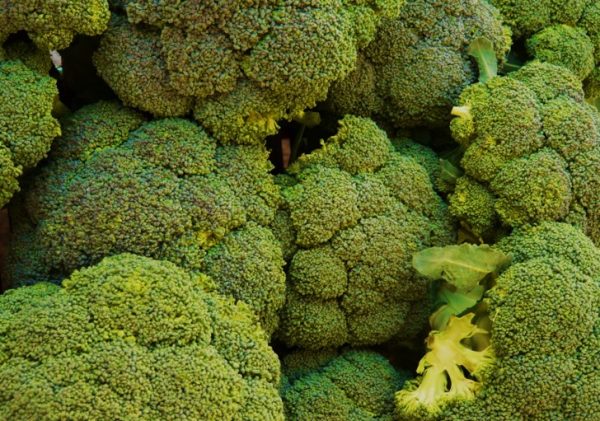
Including Broccoli In Diet Could Help Prevent Stroke
Are you avoiding broccoli in your diet? Then you should know that incorporating broccoli in daily diet can help us to prevent stroke. Broccoli is a nutrient-rich vegetable belonging to the cruciferous family, known for its health benefits. Broccoli is packed with essential nutrients, including vitamins C, K, and A, as well as folate, potassium, calcium, and fiber. These nutrients are vital for overall health, supporting functions such as immunity, bone health, and blood clotting.
Broccoli contains various antioxidants, such as sulforaphane, quercetin, and beta-carotene, which help neutralize harmful free radicals in the body. Antioxidants play a crucial role in reducing oxidative stress and inflammation, which are linked to chronic diseases like cancer and heart disease. By reducing oxidative stress and inflammation, these antioxidants may protect blood vessels from damage and lower the risk of stroke. Other ways this wonderful vegetable helps with heart health and prevents stroke are –
Significant role in heart health:
The fiber, antioxidants, and other nutrients in broccoli support heart health by helping to lower cholesterol levels, regulate blood pressure, and reduce the risk of heart disease. Additionally, sulforaphane in broccoli may help improve blood vessel function and reduce the risk of atherosclerosis, reduces the buildup of plaque in the arteries, all of which contribute to a healthier cardiovascular system and a lower risk of stroke.
Anti-inflammatory effects: Chronic inflammation is a risk factor for stroke. Certain compounds found in broccoli, such as sulforaphane, have anti-inflammatory properties that can help reduce inflammation throughout the body, including in the arteries and blood vessels.
Blood pressure regulation: High blood pressure is a major risk factor for stroke. Broccoli is rich in potassium, which helps regulate blood pressure by counteracting the effects of sodium and relaxing blood vessel walls. Consuming potassium-rich foods like broccoli as part of a balanced diet may help lower blood pressure and reduce the risk of stroke.
Blood clot prevention: Ischemic stroke, the most common type of stroke, occurs when a blood clot blocks blood flow to the brain. Broccoli contains vitamin K, which plays a role in blood clotting and may help prevent excessive clot formation. Adequate intake of vitamin K from sources like broccoli can help maintain proper blood clotting function and reduce the risk of ischemic stroke.
Improved blood flow: Compounds like sulforaphane found in broccoli may help improve blood vessel function and promote healthy blood flow. By enhancing circulation and preventing blood vessel damage, broccoli may reduce the risk of stroke caused by blood vessel abnormalities or clotting disorders.
Maintaining healthy weight: Obesity and excess body weight are risk factors for stroke. Broccoli is low in calories and high in fiber, which can support weight management by promoting feelings of fullness, reducing calorie intake, and supporting healthy digestion. Maintaining a healthy weight through a balanced diet that includes broccoli may help lower the risk of stroke.
Ways to eat broccoli: You can wash and eat broccoli. You can also boil broccoli with light salt and have. One can prepare broccoli soup or add it to vegetable stir fry.
Incorporating broccoli into your diet regularly can contribute to overall health and well-being, providing a range of essential nutrients and potential health benefits. While broccoli offers potential benefits for stroke prevention, it is essential to remember that stroke risk is influenced by multiple factors, including lifestyle habits, medical history, and genetic predisposition. Incorporating broccoli into a varied and balanced diet, along with other healthy lifestyle choices such as regular exercise and avoiding smoking, can contribute to overall stroke prevention efforts.
Image credit: https://pxhere.com/en/photo/1156742 (CC0 For Public Domain)
Author: Sumana Rao | Posted on: March 13, 2024
« Reasons To Include Rose Water In Your Skin Care Routine Use Cucumber To Keep Skin Healthy This Summer »






















Write a comment